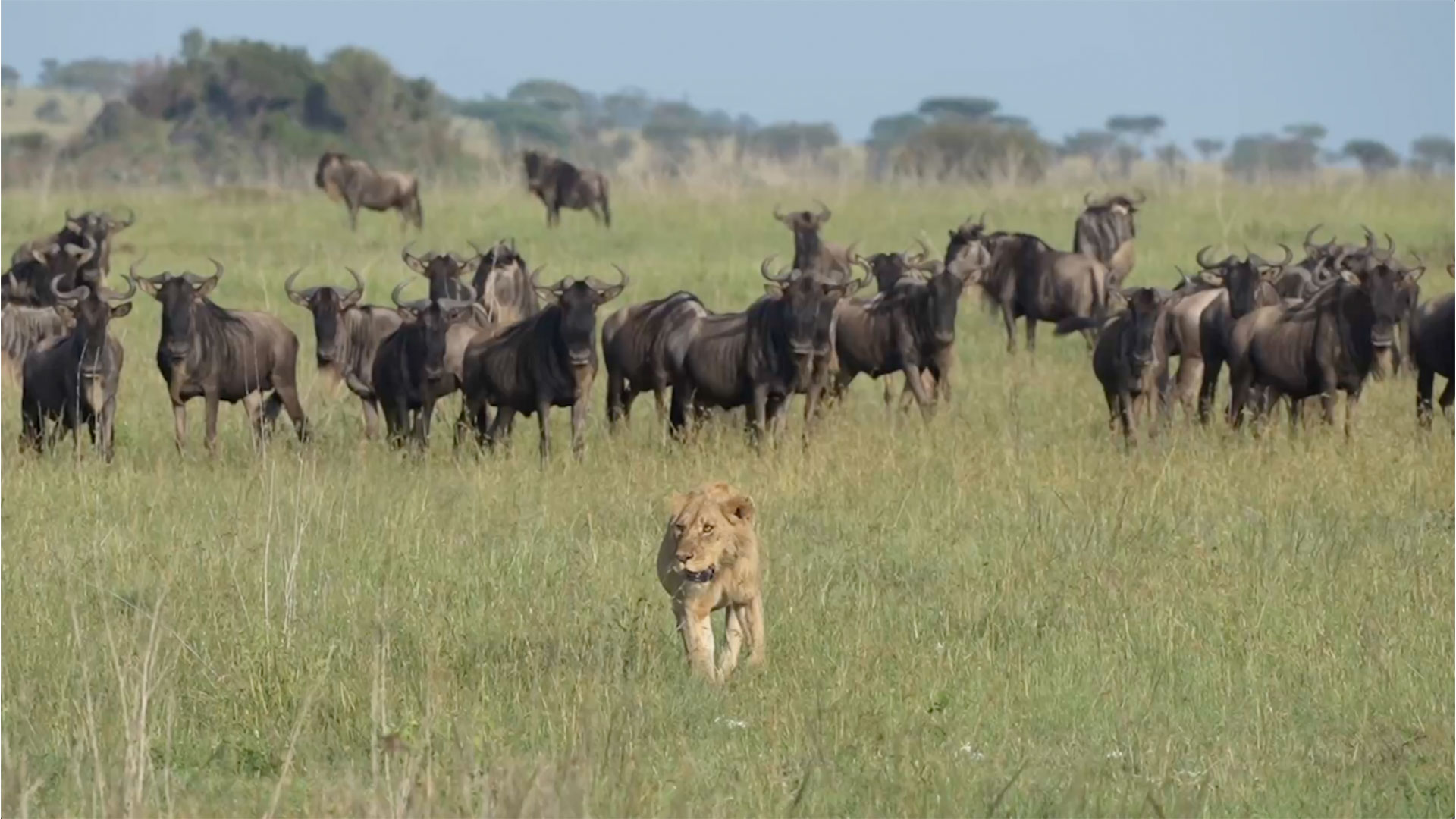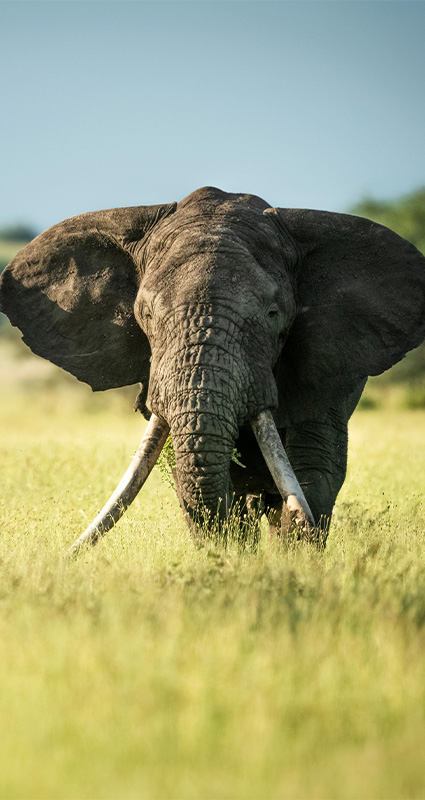Safari experts & storytellers. Since 1991
Trust us to find you the rarest animals, the most spectacular wildlife events, the remotest landscapes and deeply meaningful cultural encounters!
Plan your Serengeti National Park trip to witness the iconic Great Wildebeest Migration, experience luxury and explore one of Africa's premier safari destinations; lush with wildlife. Here we help you discover the best time to visit this legendary safari destination and unpack everything this African gem has to offer beyond its famous wildlife spectacle. Scroll down to learn more about this incredible space.
Discover the ultimate Serengeti safari with tailored luxury and private adventures
The magic of a safari in Serengeti National Park
In northern Tanzania lies a world-renowned wilderness so expansive that the original inhabitants, the Maasai people, named it siringet – "a place where the land runs forever." This is the Serengeti, a land synonymous with the very essence of an African safari, where sweeping grass plains, rocky outcrops, leafy woodlands and fertile volcanic soils create the perfect habitat for the region's populous herbivores and well-fed predators.
At roughly 31,667km² (almost 3.2 million hectares) of protected area, the Serengeti ecosystem covers a large portion of Tanzania's northwestern corner. It is so vast that it dwarfs the neighbouring Maasai Mara by a factor of ten, offering wildlife viewing opportunities that match the endless scenery.
Serengeti National Park safari overview
Serengeti National Park in northern Tanzania hosts the world's second-largest overland mammal migration. Planning a trip to Serengeti National Park offers unparalleled wildlife experiences:
Wildlife: Over 1 million wildebeest, zebras, and gazelles migrate year-round, taking on big cats and hyenas, raging rivers and huge crocodiles
Big Five viewing: Lions, leopards, elephants, buffalo, and rhinos thrive in diverse ecosystems
Best time to visit Serengeti National Park: December–March for calving season (8,000 wildebeest born daily), August–October for dramatic Mara River crossings
Space advantage: Ten times larger than Kenya's Maasai Mara, meaning more chances to avoid the crowds during the prime safari season
Safari options: Luxury experiences, family adventures, and private tours tailored to witness the greatest wildlife spectacle on Earth
FAQs: Serengeti National Park safari
The Mara River crossings occur primarily from August to mid-October in the northern Serengeti around Kogatende. Unlike Grumeti River crossings in July, Mara River crossings are more dramatic due to higher water volumes and steeper banks.
While river crossings attract crowds, the Serengeti's vastness (14,750km²) means that you can escape the crowds and enjoy privacy away from the river crossings. Our positioning strategies and private conservancy access provide exclusive experiences away from the river, even during busy periods.
If your main aim is to view the Mara River crossings, then make peace with the fact that there will be crowds while you are at the river. If you are the type who skips the Eiffel Tower and seeks out that artisan cheese store in the back alleys of Paris, then perhaps give the Mara River crossings a miss, and opt to watch the vast herds away from the river or even avoid the river crossing season entirely. The Serengeti Great Migration occurs throughout the year, as the herds move clockwise around the ecosystem. Our safari experts will help you decide on the best timing and itinerary to make the most of your tour of Serengeti National Park.
Wet season (March–June and November-December) offers fewer crowds, better accommodation rates, and dramatic landscapes, though some areas become inaccessible. Dry season (July–October) provides easier access and concentrated wildlife around water sources.
Absolutely! Family programmes accommodate children 6+ with educational activities, flexible schedules, and safe accommodations. Cultural interactions with Maasai communities provide enriching experiences for young minds.
Holidays to the Serengeti typically cost from US$700 per person, per night, depending on the accommodation comfort level and activities. This price usually includes accommodation, all meals, the activities described, park fees, experienced guides, airport transfers, and 24/7 support from our team. Specific inclusions vary by package – contact us for detailed itineraries.
You only make your first payment when you book your trip. Your second (last) payment is about 90 days before you travel.
Peak season bookings require 12–18 months of advance planning. Trips outside of peak season can be arranged 6–9 months ahead, with better rates and availability.
Why book through Africa Geographic?
We have been handcrafting experiential safaris since 1991. Travel in Africa is about knowing when and where to go, and with whom. A few weeks too early/late or a few kilometres off course, and you could miss the greatest show on Earth. And wouldn’t that be a pity?
Booking through a respected tour operator with many years of experience means that all you need to focus on is helping us design your safari and then having a superb vacation. The rest - all the nitty-gritty detail and admin is done while you relax. Our 24/7 concierges take care of problems such as flight changes and missed flights, last-minute road transfer and lodge changes due to unexpected events, and itinerary changes requested by you.
Remember that you will not save money by attempting to book and manage your own safari, but you will inherit mistakes and problems that arise.
Will my money be safe?
Yes, your money is safe. Your payments go into a third-party TRUST ACCOUNT - protecting them in the unlikely event of a financial setback on our part. Also, we are members of SATSA who attest to our integrity, legal compliance and financial stability. See what travellers say about us.
Why visit Serengeti National Park?
For safari enthusiasts – both first-timers and experienced travellers – visiting the Serengeti ranks among Africa's most compelling safari adventures. The immense territory and limited accommodation density ensure that visitors can enjoy breathtaking landscapes and exceptional wildlife encounters with minimal crowds. While the Great Migration Mara River crossings and calving season naturally draw larger gatherings, the sheer scale of this wilderness provides countless opportunities for solitude and authentic bush experiences throughout the year.
Forged by ancient volcanic activity and nourished by multiple waterways, the endless grasslands of the Serengeti possess an almost mythical quality. Here, more than a million animals follow age-old migration patterns in their eternal quest for fresh grazing. This remarkable interplay of geological forces and wildlife behaviour has produced one of Africa's most extraordinary natural sanctuaries.
Some key wildlife sightings that make a visit to Serengeti National Park a bucket list adventure...
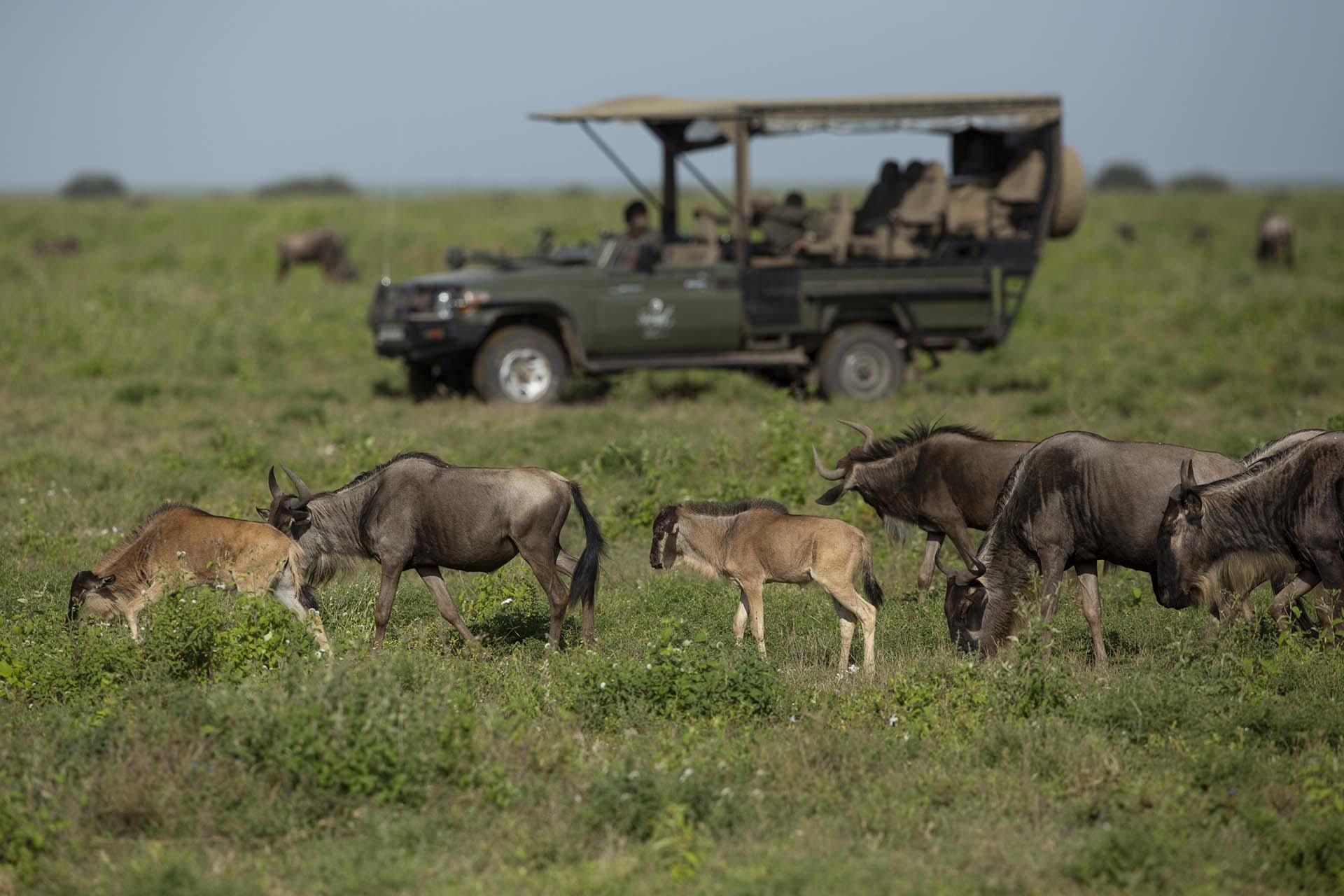
The Great Wildebeest Migration
The vast plains are best known for hosting the Great Wildebeest Migration – the second-largest overland mammal migration on earth, which takes place throughout the year in the Serengeti, sharing the months of August to October with the Maasai Mara (Kenya) as the herds repeatedly cross the Mara River to follow the rains and nutritious green grass. For the remainder of the year, the herds are either calving in the southern Serengeti or moving between the north and south of the ecosystem.
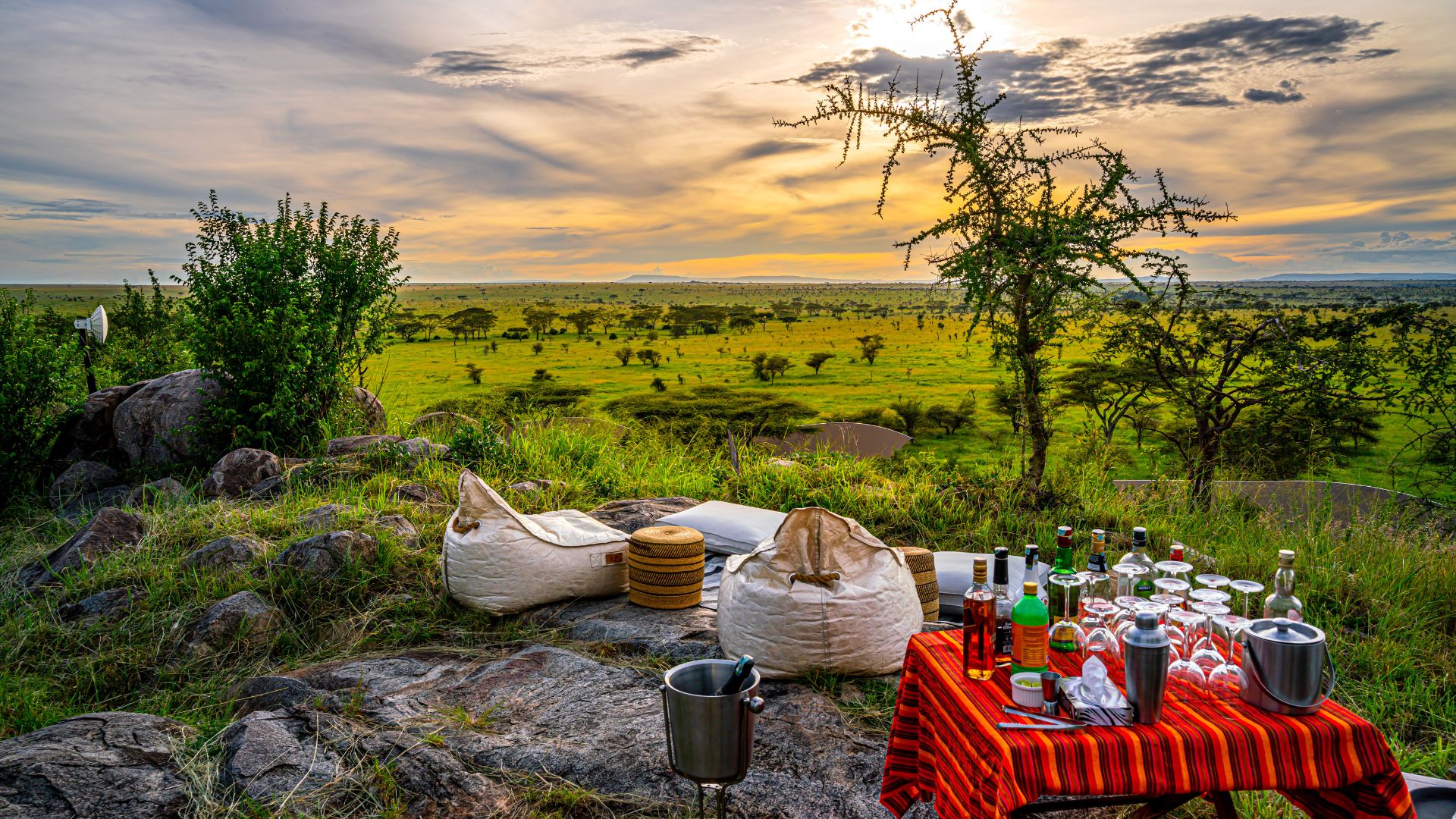
Serengeti's vast savannah
The Serengeti National Park is so expansive that the original inhabitants, the Maasai people, named it a place where the land runs forever. This fertile, volcanic landscape features grass plains, rocky outcrops and leafy woodlands.
The Serengeti ecosystem (national park + conservancies) covers 31,667km² (almost 3,2 million hectares) of protected area, which dwarfs the neighbouring Maasai Mara by a factor of ten.
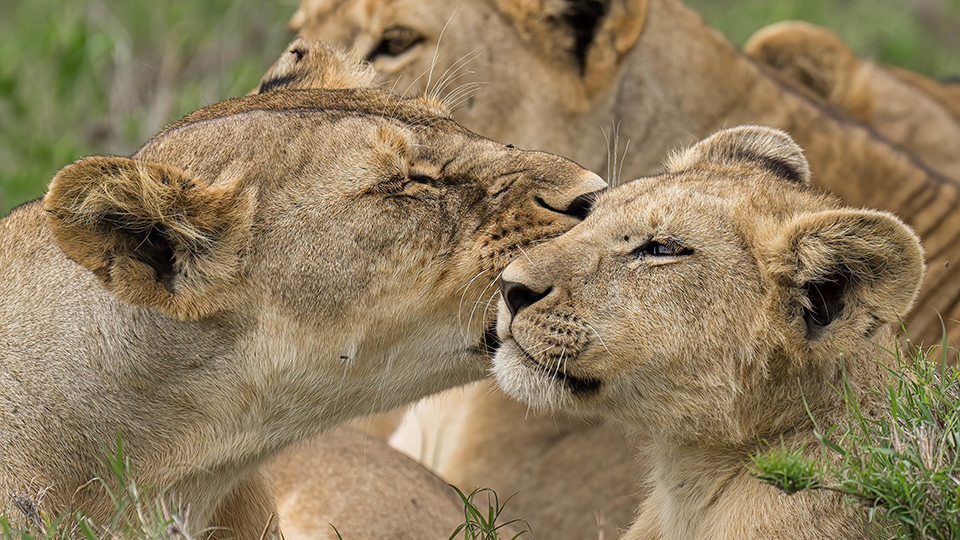
Predators and other wildlife
The Serengeti is known for its dominant lion prides, cheetahs and leopards. Add to that large hyena clans, roaming wild dogs and servals in the long grass, and you have a feast of action throughout the year. Buffaloes, elephants and black rhinos make up the rest of the Big Five, while vast herds of wildebeest and zebra fill the horizon. Other species to look out for include Masai giraffe, Grant's and Thompson's gazelles, topi, Coke's hartebeest, crocodiles and hippos.
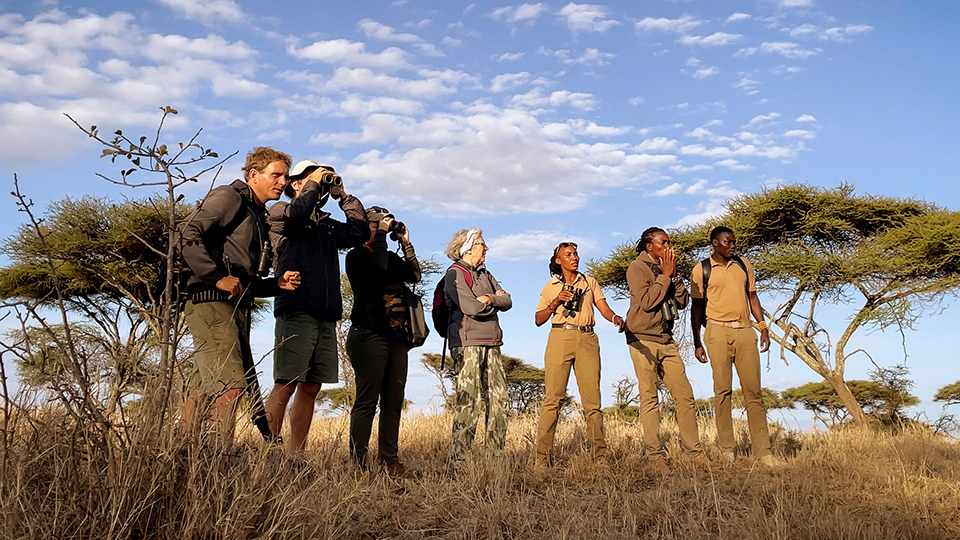
Rewarding bird watching
Over 500 bird species have been recorded in the Serengeti, including grey-rumped spurfowl, Fischer's lovebird, rufous-tailed weaver, maccoa duck, Malagasi pond-heron, Egyptian and Rüppell’s vultures, pallid harrier and Jackson’s widowbird.
When is the best time to visit the Serengeti?
With such extensive experiences available in this incredible part of the world, the ‘best time’ to visit the Serengeti National Park really hinges on what you want out of the experience – and this is where talking to a travel consultant can be invaluable to guide you in this decision. Travel consultants will also be in the know about seasonal fluctuations, so you don’t miss the greatest show on Earth.
The Great Wildebeest Migration follows rainfall patterns, making timing crucial for optimal sightings:
Calving season (December–March) | Ideal for: Newborn wildlife, predator action, fewer crowds
December–February: Southern Serengeti, Lake Ndutu area
March: Herds move more slowly with babies in tow
Weather: Short rains, warm days, cooler evenings
Migration movement (April–June) | Ideal for: Herd movements, fewer tourists, dramatic landscapes
April-May: Long rains, slippery conditions, spectacular photography
June: Herds spread out, front-runners reach Mbalageti River
Weather: Wettest months, afternoon thunderstorms
River crossings (July-October) | Ideal for: Mara River drama, mating season, peak wildlife action
July: Grumeti Reserve crossings, mating season begins
August–mid-October: Mara River crossings, highest predator activity
Weather: Dry season, hot days, clear skies
Return journey (Late October–November) | Ideal for: Peaceful grazing, smaller crowds, cooler weather
October: Casual grazing in Maasai Mara
November: Short rains trigger southward movement
Weather: Cooler temperatures, unpredictable rainfall
Map of Serengeti National Park
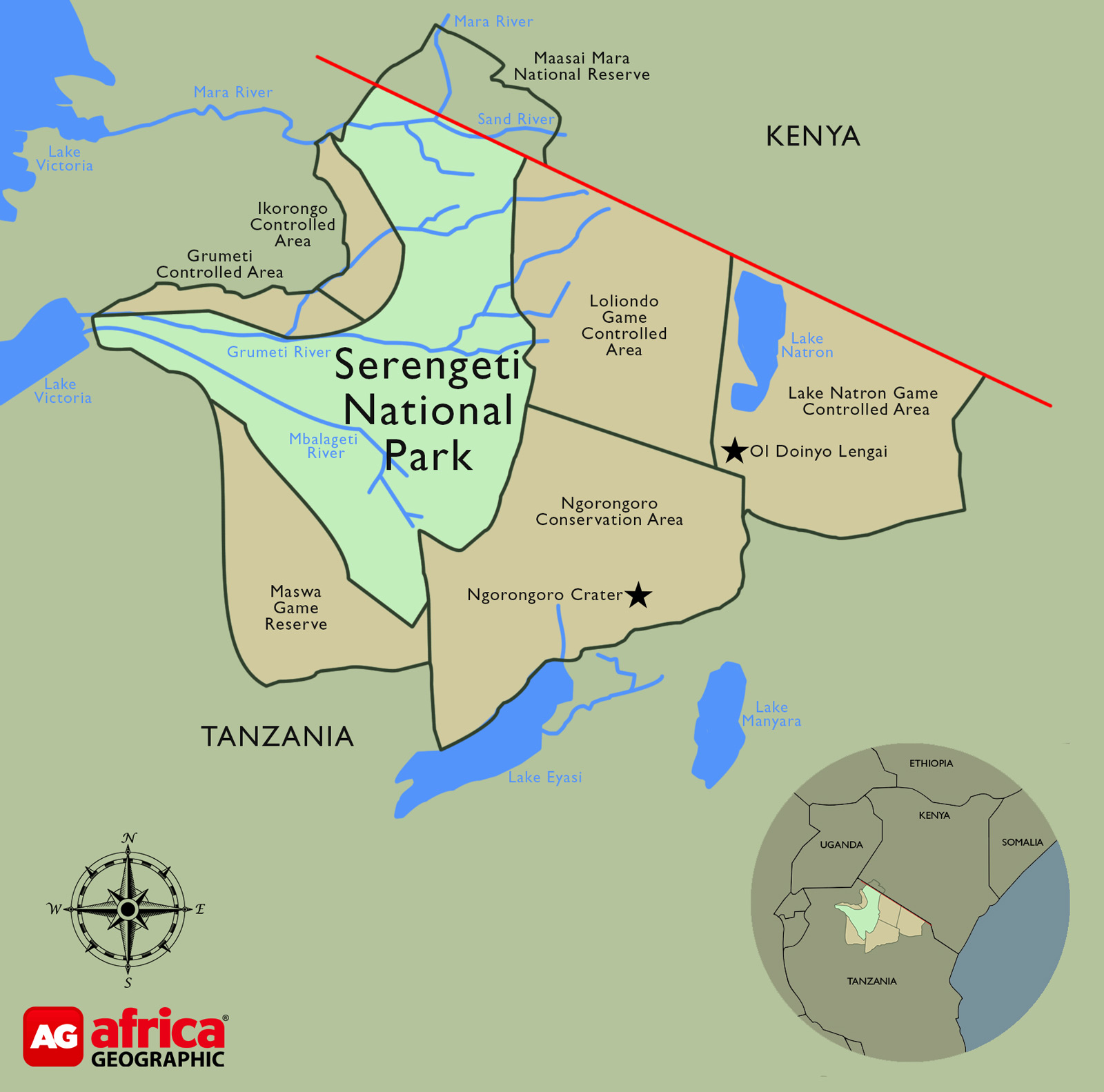
Understanding the park's geography
The Serengeti National Park forms the heart of a much larger ecosystem that spans the Kenya-Tanzania border. The park connects seamlessly with Kenya's Maasai Mara to the north, while several game reserves surround it: Grumeti and Ikorongo to the west, Maswa to the south, and Loliondo to the east.
Just southeast lies the famous Ngorongoro Crater within its Conservation Area. Beyond Loliondo rises Ol Doinyo Lengai – "the Mountain of God" – an active volcano that, along with other volcanic peaks, has helped create this region's extraordinary wildlife abundance over thousands of years.
Serengeti National Park | 14,750 km² (1,475,000 hectares) |
Ngorongoro Conservation Area | 8,292 km² (829,200hectares) |
Maswa Game Reserve | 1,415km² (141,500 hectares) |
Grumeti Game Reserve | 410 km² (41,000 hectares) |
Ikorongo Game Reserve | 600 km² (60,000 hectares) |
Loliondo Game Control Area | 6,200 km² (620,000 hectares) |
TOTAL area under conservation | 31,667 km² (3,16,600 hectares) |
Tanzania's conservation framework
Tanzanian law recognises four distinct types of protected areas, each with different levels of restriction and management:
National parks | Game reserves | Game control areas | Conservation areas |
Highest level of legal protection | Similar protection to National Parks | Allow mixed land use beyond conservation and tourism | Recognise both ecological and historical importance |
Managed by Tanzania National Parks Authority (TANAPA) | Managed by Tanzania Department of Wildlife | Permit human residence, cultivation and livestock keeping | Managed by specific authorities |
Strict control over human activity and habitation | Designated hunting areas permitted |
The Ngorongoro area is particularly significant as it is home to some of humanity's earliest footprints. Archaeological research at Olduvai Gorge and Lake Ndutu has revealed our evolutionary timeline – from early hominids through to stone tool use and the progression to iron technology.
Together, National Parks and Game Reserves protect approximately 80% of the entire Serengeti ecosystem, with less restricted land uses accounting for the remainder.
Trusted by thousands of ecstatic travellers
✔️ 5 Star Trustpilot Rating ✔️ 5,000+ Safari Trips Completed
✔️ 35+ Years of Experience ✔️ 2025 Conde Nast Travel Specialist Award Winner
"I have been travelling with Christian Boix and Africa Geographic for more than a decade. Amateur photography is my hobby, and each trip has been unique, well-planned, and fulfilled my purposes ... the migration in the Serengeti ... driving in the Serengeti for miles and miles among 1.5 million wildebeest, and 400,000 zebras enabled me to start to comprehend the magnitude of the "migration"; in addition, we saw a cheetah making a kill of a young Grant gazelle. Trust and enjoy."
"After having done about 12-15 safaris in East Africa, I was hugely impressed by the very professional service and product offered by Africa Geographic Travel. Outstanding in every aspect ranging from understanding what I was looking for, the presentation of how they received my request to the actual trip as such with a unique product - tented mobile safari in Botswana, high five in every aspect !"
"Our journey began long before we set foot in Africa—with a simple online inquiry through Africa Geographic. Within seconds, I was contacted by Karen, who warmly invited me to chat about our hopes, preferences, and expectations. The very next morning, I received an email from Stefan Winterboer, who would become our dedicated travel consultant for what would turn out to be the trip of a lifetime. From that first message onward, everything flowed seamlessly ... I wholeheartedly recommend Africa Geographic ... to anyone considering an African adventure ..."
Should I visit Maasai Mara or Serengeti?
Both destinations form part of the Greater Serengeti-Mara ecosystem. Each offers distinct experiences & advantages:
Serengeti National Park | Maasai Mara |
Ten times larger than Maasai Mara | Smaller size means wildlife is easier to find |
Hosts the Great Migration year-round | Hosts Great Migration August to October |
Exclusive access to February calving season | Exclusive private conservancies |
Diverse landscapes: plains, rocky kopjes, and forests | Excellent year-round resident wildlife |
Lower density and crowds | Higher tourist volumes |
Longer game drives, & distances between regions | Shorter distances between locations, easier to explore |
Serengeti deep dive
The Serengeti's migration extravaganza: First-person account of the incredible experiences of the Great Migration
The Great Migration explained: The Serengeti and Maasai Mara ecosystems see huge herds of wildebeest and zebras migrating in a continuous search for the best food and water. Although this journey follows a similar annual route, exact timing varies based on rainfall.
Ready to experience the Serengeti National Park?
Tell us about your dream trip - our travel experts will craft a no-obligation itinerary just for you. We have crafted over 5,000 safaris since 1991. Your personal details are protected; we only use this information to contact you.

Why choose us to craft your safari?
Handcrafted experiential safaris since 1991.
Travel in Africa is about knowing when and where to go, and with whom. A few weeks too early/late or a few kilometres off course, and you could miss the greatest show on Earth. And wouldn’t that be a pity?

Trust & Safety
Make a difference
We donate a portion of the revenue from every safari sold to carefully selected conservation projects that make a significant difference at ground level.
YOUR safari choice does make a difference - thank you!
